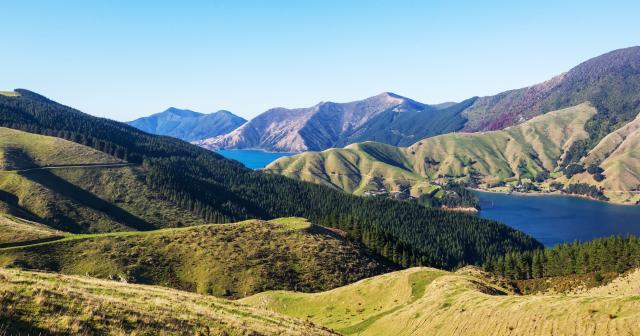The Government is consulting on changes to a range of national direction instruments, which will ultimately affect farmers through regional council plans and other rules. B+LNZ will be providing farmers with more info and will make a submission informed by farmer input.

The Government recently released for feedback proposals to change and inform development of national direction under the resource management system.
National direction sets national resource management policy and rules which inform regional and local plans, policy statements and resource consent decisions. It includes national policy statements, national environmental standards, and section 360 regulations.
Regional councils will be required to ‘give effect’ to the national direction instruments being consulted on. This means the outcome of this work will affect farmers through regional council rules and plans.
It’s important to get these instruments right. If B+LNZ can successfully influence the Government at a national level, our sector will be in a much stronger starting position when the regional council plans are drafted.
What’s being consulted on
There are four consultation packages:
- Infrastructure and development
- Primary sector
- including the NPS for Highly Productive Land which B+LNZ previously submitted on, and amendments to the Stock Exclusion Regulations (so requirements to exclusion from wetlands would not relate to non-intensively grazed beef cattle and deer)
- Freshwater
- including whether changes should be implemented under the existing RMA or under new resource management legislation
- including many changes to the NPS for Freshwater Management
- further consultation will be undertaken, later this year, through a more detailed exposure draft of the proposed freshwater national direction
- Going for Housing Growth
There’s more information on the Ministry for the Environment website here and we’ve provided some information our website here.
What B+LNZ is doing
B+LNZ will provide a submission, informed by farmer feedback. Because the consultation is wide-ranging and highly technical in places, we will focus our efforts on the topics that will have the greatest impact on farmer profitability and productivity.
The Government’s consultation topics that may impact pastoral farming are:
- National Policy Statement for Freshwater Management/ National Environmental Standards for Freshwater Management:
- freshwater management through multiple objectives
- Te Mana o te Wai
- National Objectives Framework
- commercial vegetable growing
- water security and water storage
- wetlands
- fish passage regulations
- synthetic nitrogen fertiliser use
- Stock Exclusion and Wetland Regulations:
- standards for activities such as fencing, irrigation, wetland construction
- wetland management
- grazing intensity definitions
- National Policy Statement for Highly Productive Land.
B+LNZ will also be asking for the Government to consider changes to the National Policy Statement for Indigenous Biodiversity, and in particular, amending the definition of Significant Natural Areas so that it only captures truly significant biodiversity. This is not part of the Government’s current consultation package.
Note also the Government is presently working on the national freshwater farm plans regulations separately.
Farmer input into this consultation
B+LNZ is asking for farmer feedback and practical examples of how the proposals will affect people on the ground.
We’ll also be holding small group meetings with farmers and two webinars to outline what’s proposed, our views, and to gather your feedback. The webinars will run on:
- Tuesday 8 July, 12:30 to 1.30pm, and
- Thursday 10 July, 7 pm to 8 pm.
Farmers are welcome to send their own submissions – see MfE’s website for details and we’ve also provided some guidance on our dedicated webpage. Note the consultation closes Sunday 27 July.
Next steps
Once we’ve gathered farmer input and completed our consultation submission, we’ll publish it on our website – this will be around the time consultation closes (27 July).